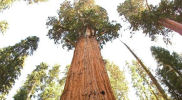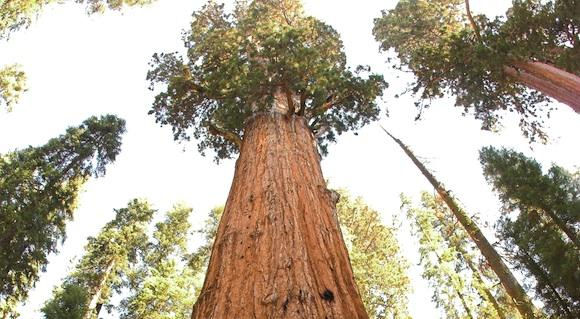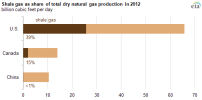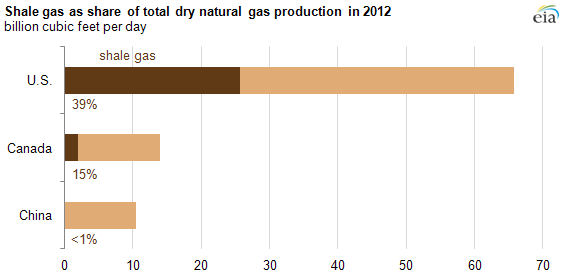International Actions On the Weekend of February 23
*Actions listed alphabetically by city*
Albany, NY
Hands off Venezuela!
Saturday, February 23 | Noon
Wolf Rd and Central Ave
Contact: 518-281-1968
Atlanta, GAMonday, Feb. 18, 6-8pm: Special WRFG 89.3FM program :US Hands off Venezuela! Local and national anti-war and social justice activists provide facts and analysis exposing the 20 year campaign by the US to overturn the Bolivarian Revolution with its radical program to end poverty and empower the mass of people. Also streamed at wrfg.org and on mobile apps. Wednesday, Feb. 20, 4-5pm: Join Georgia Peace and Justice Coalition’s weekly vigil at Moreland and Ponce de Leon to oppose all US actions to bring about a coup against the elected president, Nicolas Maduro in Venezuela.. Friday, Feb. 22, noon-1pm: Colony Square Peace vigil at Peachtree and 15th St. No War on Venezuela! Saturday, Feb. 23, 1-3:30pm: Stand with Venezuela’s Bolivarian Revolution! Town Hall Meeting, The Arts Exchange, 2148 Newnan St., East Point 30344. Videos, speakers, discussion. For more information, [email protected] or [email protected]Saturday, Feb. 23, 5-7pm: Tune in to WRFG’s “Beyond Borders program for reports of No War on Venezuela actions around the US and the world. 89.3FM, wrfg.org
Chicago, ILNo War No Coup Against VenezuelaFriday, February 22 | 4:30pm ABC News Studio | 190 N State Sponsored by Evanston Neighbors for Peace, Chicago ALBA Solidarity, Chicago Area Peace Action, Chicago Committee Against War and Racism, Vets for Peace- Chicago, others
Corvallis, OR
No War On Venezuela!
Saturday, February 23 | 5pm
Benton County Courthouse, 120 NW 4th Street
Organized by: Corvallis Latin America Solidarity Committee and the Corvallis chapter of the Committees of Correspondence for Democracy and Socialism
Dublin, IrelandVenezuela Global Day of ActionSaturday, February 23 | 1pm U.S. Embassy | Ballsbridge, Dublin 4 Organized by: Venezuela Ireland Network, Peace and Neutrality Alliance (PANA)
Dhaka, Bangladesh
USA Hands off Venezuela
Saturday, February 23 | Details TBA
Organized by: Socialist Party of Bangladesh
East Setauket, Long Island, NYHands off Venezuela! Saturday, February 23 | 11am Rt. 25A and Bennetts Rd., East Setauket, Long Island, NY 11733 Solidarity action to take place during the regular anti-war Saturday vigil organized by the North Country Peace Group at the corner of Rt. 25A & Bennetts Road, E. Setauket, NY (south side of street). Vigil will take place 11 a.m. – 12:15 p.m. Bring signs. Please avoid parking in CVS lot and use other nearby parking on Rt. 25A and across the street on North Country Road. Organized by: North Country Peace Group, contact: [email protected]
Fayetteville, NCNo War on Venezuela! March on Ft. BraggSaturday, February 23 | 2 - 5pm Join anti-imperialist and progressive forces at Fort Bragg, the largest military base in the world, to demand Hands off Venezuela!
Glasgow, ScotlandNo War on Venezuela! International Day of Action, GlasgowSaturday, February 23 | 1pm Glasgow Royal Concert Hall | Sauciehall Street Glasgow G2 3NY Scotland Hosted by Revolutionary Communist Group – Glasgow, Fight Racism!Fight Imperialism!, Hands off Venezuela, and Glasgow Marxists
Hartford, CT
No War on Venezuela!
Saturday, February 23 | 12pm
Federal Building | Main St
Organized by: CT Peace and Solidarity Coalition
Houston, TXNo War on Venezuela!Saturday, February 23 | 2pm Mecom Fountain Traffic Circle (Main St and Montrose)
Indianapolis, IN
No war on Venezuela!
Saturday, February 23 | 4pm
Indiana State Capitol | 200 W Washington St
Jersey City, NJ
No war on Venezuela!
Saturday, February 23 | 11am – 2pm
Manhattan Ave. & Central Ave. (across from the Stop&Shop supermarket)
Organizations currently sponsoring: NJ Action 21, Jersey City Peace Movement, Veterans For Peace
Kolkata, India
US Imperialism Hands Off Venezuela
Saturday, February 23 | Details TBA
Organized by: Socialist Unity Center of India (C)
Liverpool, EnglandHands off Venezuela!Saturday, February 23 | 12pm Derby Square | Liverpool L2, 9 England Co-hosted by Revolutionary Communist Group – Liverpool Fight Racism! Fight Imperialism!, Hands Off Venezuela, and Liverpool Marxist Society
Join the South Florida anti-war community as we demand: No U.S War on Venezuela! Stop the Coup! End the Sanctions! Self Determination for the Venezuelan people!
In South Florida, we have a particular obligation to stand against US interference in Venezuela. Miami is home to US Southern Command in Doral, FL– the base for all US military operations in Latin America, particularly Venezuela at the moment. US SOUTHCOM is a nefarious entity whose track-record includes toppling governments throughout Central and South America and the Caribbean, propping up right-wing governments and dictators, arming death-squads throughout the hemisphere, and committing troops to countries within the region.
For more info, contact POWIR
Minneapolis, MN
Saturday, February 23 | 1pm
U.S. Hands off Venezuela
No coup
No sanctions
No new U.S. war!
1:00 pm – Gather at Hennepin & Lagoon Aves, Minneapolis
Be part of a visible anti-war presence, say no to U.S.
intervention
1:30 pm – Anti-war visibility at nearby busy corners
2:00 pm Closing rally
Monterey, CASaturday, February 23 | 4 – 6pm Window on the Bay | Across from El Estero Park Raise Awareness on the Situation in Venezuela and Join Veterans For Peace Chapter 46 on February 23 Contact: Justin Loza, VFP 46 President | [email protected]
Moscow, Russia
No War on Venezuela!
Details TBA
Newcastle Upon Tyne, EnglandHands off Venezuela! No Sanctions! No Coup!Saturday, February 23 | 12pm Grey’s Monument | Newcastle upon Tyne, England Hosted by Revolutionary Communist Group – Fight Racism! Fight Imperialism! North East, Hands Off Venezuela, and Newcastle Marxist Society
New Haven, CT
No War on Venezuela!
Saturday, February 23 | Details TBA
On the Green
Organized by: CT Peace and Solidarity Coalition
New Orleans, LAHands off Venezuela ForumSunday, February 24 | 5pm Cafe Istanbul NOLA | 2372 St. Claude Ave Organized by: New Orleans Workers Group
Newark, NJ
No War on Venezuela!
Details TBA
For more info: 973-801-0001
Oakland, CANo war on Venezuela!Saturday, February 23 | 12pm Oscar Grant Plaza | 14th and Broadway Sponsored by: Spring Action Antiwar Coalition (Bay Area)
Ottawa, Canada
No war on Venezuela!
Saturday, February 23 | 12pm
Gather at the Prime Minister’s office for a march to the U.S. Embassy!
Portland, OR
Saturday, February 23 | 3pm
Sunnyside Community Center | 3520 SE Yamhill St
Racine, WI
No war on Venezuela – Presentation on the history of US intervention in Latin America, and on Venezuela from 1998 to the present
Saturday, February 23 | 11am
John Bryant Community Center | 601 Racine St
No War on Venezuela!
Saturday, March 16 | 11am – 1pm
Monument Square
Regina, Saskatchewan, Canada
No War on Venezuela!
Saturday, February 23 | 2pm
City Hall, Peace Fountain
Rome, Italy
Saturday, February 23 | Details TBA
Organized by: Fronte Popolare, La Città Futura, Collettivo Militant, Casa del Popolo Giuseppe Tanas (Roma), Patria Socialista, PCI, Italia-Venezuela Bolivariana
Santa Clara, CA
Hands Off Venezuela! No Coup In Venezuela! Venezuelan Oil For Venezuela! US Out of Venezuela! Maduro Democratically Elected!
Saturday, February 23 | 12pm
Gather at The Peace Corner | Stevens Creek Blvd and Winchester Blvd
Toronto, CanadaNo to U.S.-Led Intervention: A Community ForumWednesday, February 20 | 6:30pm University of Toronto | 252 Bloor Street West An Emergency Community Forum: Join us for a public forum with representatives from the Caribbean, African and Latin American community organizations, discussing the deeply inconsistent, hypocritical and dangerous ways the Canadian government has historically approached matters of humanitarian intervention – and why this matters today when it comes to Venezuela.
Sponsoring groups: Global Afrikan Congress, Group for Research & Initiative for the Liberation of Africa (GRILA), Common Frontiers, Caribbean Solidarity Network, Students Against Israeli Apartheid, Latin American and Caribbean Solidarity Network – LACSN, Hugo Chavez Front, Justice 4 Migrant Workers, Jamhoor, Venezuela Solidarity Committee
Tucson, AZ
Saturday, February 23 | 10a - 2p
Armory Park, during the Peace Fair
Organized by:Tucson Anti-War Committee
Turin, Italy
Saturday, February 23 | Details TBA
Organized by: Fronte Popolare, Rete dei Comunisti and Potere al Popolo
Valleta, Malta
Saturday, February 23 | 4pm
28 Strait Street
Organized by: ALBA MNAC and PKM
Vancouver, BC, Canada
Saturday February 23 | 2pm
No War on Venezuela! – International Day of Action
Vancouver, Canada Rally & Petition Campaign
No Coup in Venezuela!
U.S./Canada Hands Off Venezuela!
No more U.S./Canada Sanctions & Threats!
Vancouver Art Gallery
Robson St. at Howe St.
Downtown Vancouver
Organized by: Fire This Time Movement for Social Justice (FTT) – Venezuela Solidarity Campaign
Endorsed by: Mobilization Against War and Occupation (MAWO), Vancouver Communities in Solidarity with Cuba (VCSC), Iranian Community Against War
|
 Fürth, Germany — Animal welfare activists disrupted the Annual General Meeting (AGM) of adidas in Fürth, Germany, today with shareholders calling on corporate executives, CEO Björn Gulden and CFO Harm Ohlmeyer, to answer why the company persists in sourcing kangaroo skins even though the commercial killing of the marsupials plainly violates adidas policies on humane treatment of animals.
Fürth, Germany — Animal welfare activists disrupted the Annual General Meeting (AGM) of adidas in Fürth, Germany, today with shareholders calling on corporate executives, CEO Björn Gulden and CFO Harm Ohlmeyer, to answer why the company persists in sourcing kangaroo skins even though the commercial killing of the marsupials plainly violates adidas policies on humane treatment of animals. 
 Below is a list of only some signatures from international organisations and individuals endorsing the campaign No War on Venezuela. Full list on web page. Action plan for Melbourne organised by the Australian-Venezuelan Solidarity coalition on Saturday 23 February, 11am at Trades Hall.
Below is a list of only some signatures from international organisations and individuals endorsing the campaign No War on Venezuela. Full list on web page. Action plan for Melbourne organised by the Australian-Venezuelan Solidarity coalition on Saturday 23 February, 11am at Trades Hall. Old trees contribute more to carbon storage than previously thought in a new international study that included researchers from the University of Melbourne. The study demonstrated that tree growth rates increased continuously with size, and in some cases, large trees appeared to be adding the carbon mass equivalent of an entire smaller tree each year. The significance of this study is that big old trees are better at absorbing carbon from the atmosphere than previously thought. (Candobetter.net Editor: And that's not all that old tree do -
Old trees contribute more to carbon storage than previously thought in a new international study that included researchers from the University of Melbourne. The study demonstrated that tree growth rates increased continuously with size, and in some cases, large trees appeared to be adding the carbon mass equivalent of an entire smaller tree each year. The significance of this study is that big old trees are better at absorbing carbon from the atmosphere than previously thought. (Candobetter.net Editor: And that's not all that old tree do -  The study was published in the journal Nature this week. Contributing author, Associate Professor Patrick Baker, an ARC Future Fellow at the Melbourne School of Land and Environment, University of Melbourne, said,
The study was published in the journal Nature this week. Contributing author, Associate Professor Patrick Baker, an ARC Future Fellow at the Melbourne School of Land and Environment, University of Melbourne, said, In a press release entitled, "North America leads the world in production of shale gas," the US Energy Information Administration (EIA) boasts long and loud that US gas quantities extracted by fracking shale beds vastly exceed production in Canada and China. Energy resources analysts, however, are critical that the EIA never releases balanced accounts on petroleum and gas production which would reveal the growing costs of extraction.
In a press release entitled, "North America leads the world in production of shale gas," the US Energy Information Administration (EIA) boasts long and loud that US gas quantities extracted by fracking shale beds vastly exceed production in Canada and China. Energy resources analysts, however, are critical that the EIA never releases balanced accounts on petroleum and gas production which would reveal the growing costs of extraction.




Recent comments